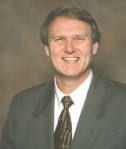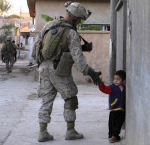RESPONSIBLE PEDAGOGY

Praise for Balance in Compulsory Co-curriculum
By Travis L. Harvey
To celebrate Belmont University’s Debate ’08, several members of the faculty organized a symposium meant to spur debate and dissent. Prominent national speakers like Dr. Tony Campolo and Ken Burns, in addition to Belmont faculty, spoke on a variety of politically-charged topics. Most of the events awarded students convocation credit for attendance. Dr. Ronnie Littlejohn’s convocation discussing Just War Theory and pre-emption stood out as one of the highlights of over 50 lectures.
Dr. Ronnie Littlejohn -- Educating without Indoctrinating
Littlejohn serves as the chair of Belmont’s philosophy department, and had previously lectured on the topic following 9/11. “I had talked about pre-emption right after 9/11 on campus, and what I saw as a significant shift in [US] policy,” Littlejohn told the RAR. “When they got ready to do the Debate and Dissent programming, Dr. Osborn, who was on the committee to plan the speakers, asked me to come back and do my talk on Just War again. I had some new material, and it was a good time to bring it up.”
According to Just War Theory, there are a number of criteria which must be satisfied to morally justify acts of war. There must be a necessity for war, with the guiding ideology being self-defense. The cost and benefits of the war must be calculated, and there needs to be a reasonable probability of success. War must be the result of the deliberation of a proper authority, meaning the sovereign must account to its people explaining its departure from peace, and a war must be pursued with proper intentions. A nation waging a just war is doing so for the cause of restoring justice and not for personal gain or revenge.
Then came the Bush Doctrine.
In June 2002 speech at West Point, President Bush initiated a new national security policy that included the right of pre-emption. According to Littlejohn’s presentation, the operative language included, “America will act against such emerging threats before they are fully formed. We cannot defend America and our friends by hoping for the best… In the new world we have entered, the only path to peace and security is the path of action.” This new strategy is based on the just war model of moral war-making as self-defense. Known as the “no-warning objection,” Bush stated, “The U.S. is not going to be a sitting duck. We cannot let our enemies strike first.”
Littlejohn did voice two major concerns with the Bush Doctrine, most importantly regarding the “no-warning” language. First, a potential enemy must have the intent and capacity to injure, and the use of hearsay is not a just cause for pre-emption. Second, in the event that intent and capacity is demonstrated, the principles of discrimination and proportionality must be put into effect. In Littlejohn’s explanation, “If my neighbor makes clear his intent to harm me, and his capacity is evident also, I can’t automatically go beat him up or shoot him to prevent it…. I have to deliberate other actions such as getting a restraining order, using the police, or such.”
What the Office of Spiritual Development doesn't want you to know about the war in Iraq
Littlejohn consciously chose to remain politically neutral during his presentation. “I said, ‘I don’t mind going in there and talking about the notion of Just War, how it developed, what it was, shifts in policy,’ but I don’t want to come down on a political position,” says Littlejohn, “But if a question goes that way, I’ll do what I need to do with that.”
Despite one’s view of the Bush Doctrine of pre-emption, one fact remains true: President Obama has inherited a war on two fronts and the world will watch with great interest in how he approaches protecting the United States and its allies. Littlejohn says, “It is pretty timely that you guys are doing this, because it will be interesting to see whether the Obama administration will set aside the doctrine of pre-emption or what they will do with that.” The RAR lauds Littlejohn for presenting a highly controversial topic in a way that informed without indoctrinating students, and supports and promotes the exchange of different views. It is our hope that more convocations follow Dr. Littlejohn’s example.
Travis Harvey is a senior Political Science major.
